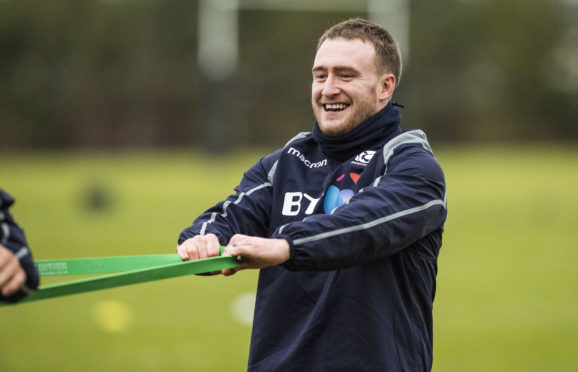It seems like now or never. 16 years without a win in Cardiff has to end today.
If Scotland’s potential is to be fulfilled, if they’re where we all believe – it’s gone beyond just hope – they are in terms of development, it’s time to knock off another of these historic failure milestones.
Beating Wales last year was one of them. It had been a decade and all of Warren Gatland’s tenure as head coach that the Scots had failed to beat the Welsh. Given Gatland was on sabbatical with the Lions last year, you can bet the ever-competitive Kiwi still believes he’s got a clean slate against the Scots.
Yet that game shouldn’t be seen in any kind of isolation. Wales’ glory years under Gatland seem to be slowly grinding to a halt. Last year, without his direct presence, seemed to be a signal of slow decline – Wales were the only team of the “big five” to lose at home, albeit to a try to England in the dying minutes.
They still sent a disproportionate number of players to the Lions last summer, and that may be a factor in why their squad sessions look more like a casualty station this season. The number of wounded, out of the championship like Sam Warburton, Jon Davies or Rhys Webb, or out of the first few games like Taulupe Faletau, George North and Lee Williams, is astonishing.
With seven or eight first choice players missing – and all of them were in the team that were reasonably comfortably beaten at BT Murrayfield last year – it certainly suggests an opportunity for Scotland, still buoyant after a fine autumn which culminated in all out dreams being fulfilled at once – well nearly – in an eight-try rout of the Wallabies.
Scotland have had their injury difficulties as well, most publicly noted in the front row, where six front line props and two hookers are absent injured. Yet the “crisis” in the front row has existed right throughout the rise of the team in the last 18 months – since the autumn tests of 2016, when Vern Cotter blooded the callow Allan Dell and Zander Fagerson as his front-line props.
There’s been some buckling and bending in that time, but in no games, save for the New Zealand test when an inexperienced All Black front row was clearly on top, has it been an overriding weakness. And Scotland nearly beat the All Blacks for the first time despite that deficiency.
One could reasonably argue that the front row is actually stronger today than at any time since the 2016 6 Nations. Stuart McInally has emerged as a proper hooker under the tutelage of Richard Cockerill, and Gordon Reid and Jon Welsh have been around the block long enough.
Some – this writer among them – think Welsh has been shabbily treated since he last played and is the best scrummaging tight head available to Scotland, WP Nel included.
Scotland don’t tend to have a lot of scrums anyway, and with the roof closed after the usual ludicrous “row”, ball-handling is going to be a good deal easier.
And while Wales may realistically claim to still have the upper hand in that area, they don’t anywhere else. If you’re a Scot, there’s very few players outwith the front row – Alun Wyn Jones certainly, maybe Scott Williams, possibly Ross Moriarty properly match-fit, which he isn’t – where you’d pick the Welshman instead of the Scot selected.
But we’ve seen the Scots go in full of confidence and flop twice in the last year, at Twickenham and Suva. They barely got past Samoa in the autumn. There’s certainly scope for a letdown and a feeling that for all the talent they have, the Scots haven’t always responded positively to real adversity.
The Australia game in Sydney and the way they came back against New Zealand was evidence that they can.
There will be times when they are asked tough questions in this 6 Nations, and for all the Wales are weakened, they will ask some today.
The Scots can’t afford another of the dispiriting steps back that always seem to follow the grand steps forward. It’s time to bury the Cardiff hoodoo, along with all the others.


